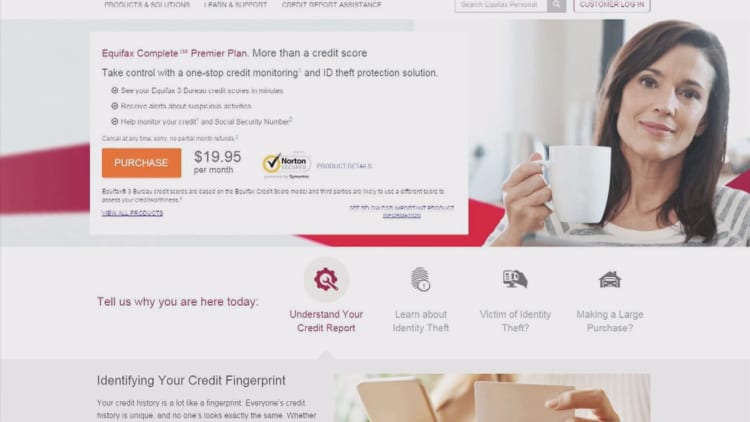
Equifax, the credit-reporting firm facing a barrage of criticism over its response to a massive data breach at the company, will now waive certain fees related to one of its credit-protection products.
The now-free Equifax service, which involves identity-theft protection and credit-file monitoring for a year, also allows you to put a lock on your credit report at Equifax. This basically means a lender cannot access it to check on your credit score or history. You can unlock it temporarily if you need to apply for credit or a loan.
The lock/unlock action typically comes with a small fee, which Equifax is waiving through Nov. 21, the last day consumers can take advantage of the offer of free credit monitoring.
The company also is in the process of refunding any fees that consumers have paid since last Thursday to place a security freeze on their Equifax file.
"We are listening to concerns raised by consumers and in the media, and continue to work on improving the customer experience," an Equifax spokesperson said in a statement.
Data exposed in the breach, which Equifax said was discovered July 29, include names, birth dates, Social Security numbers, addresses and some driver's license numbers, according to the company. The company said the attack occurred from mid-May through July.
The solution being offered by Equifax to concerned consumers could do little to prevent fraudsters from opening credit in a victim's name. This is because some lenders turn to other credit-reporting firms when they receive credit or loan applications.
The problem is that the service Equifax is giving away only allows you to lock down Equifax, not the other two.John Ulzheimerpresident, The Ulzheimer Group
"The problem is that the service Equifax is giving away only allows you to lock down Equifax, not the other two," said John Ulzheimer, a credit expert and president of The Ulzheimer Group in Atlanta.
Ulzheimer said you would need to put a lock on your reports from the two other major credit reporting companies, TransUnion and Experian, to cover all your bases.
Alternatively, you can put a 90-day fraud alert on your credit reports, which is free. To do this, you need to only alert one credit reporting agency, which in turn is legally obligated to share that alert with the others.
"The alert means that any lender has to contact you and verify that you're the one applying and it's not fraudulent," Ulzheimer said.
WATCH: What went wrong for Equifax in first 48 hours



